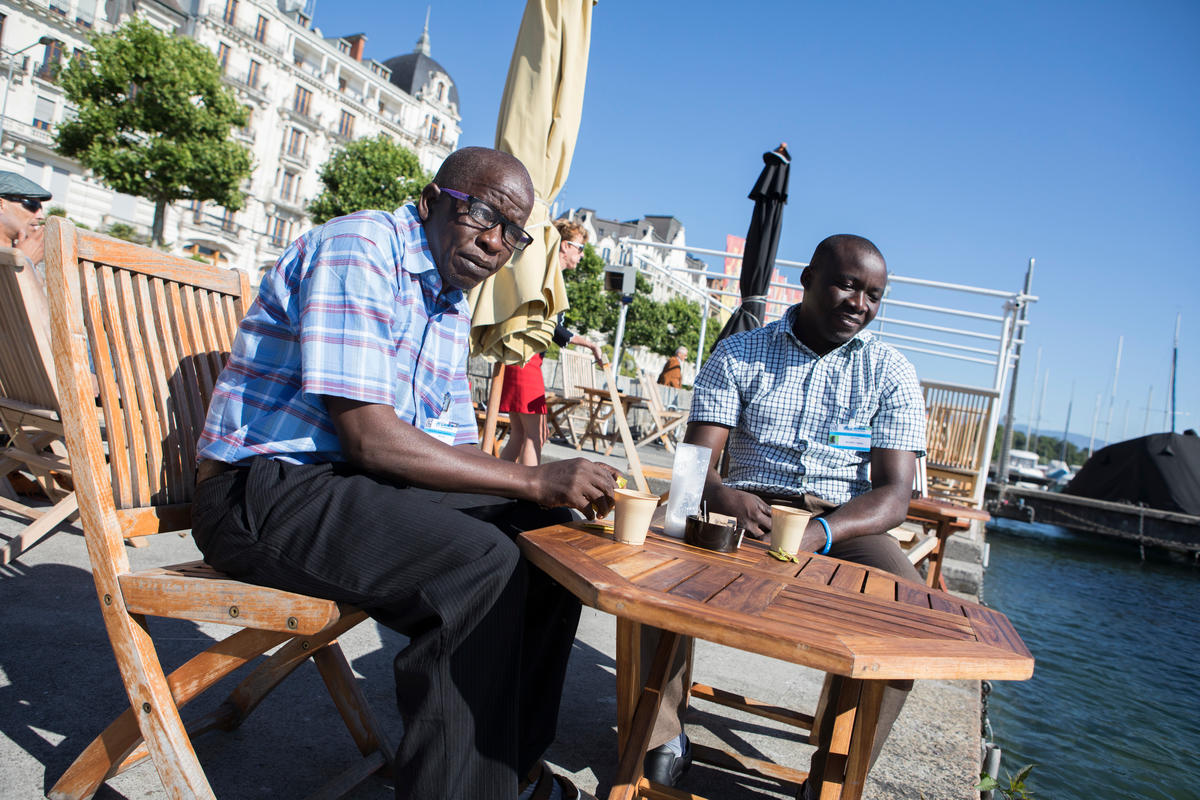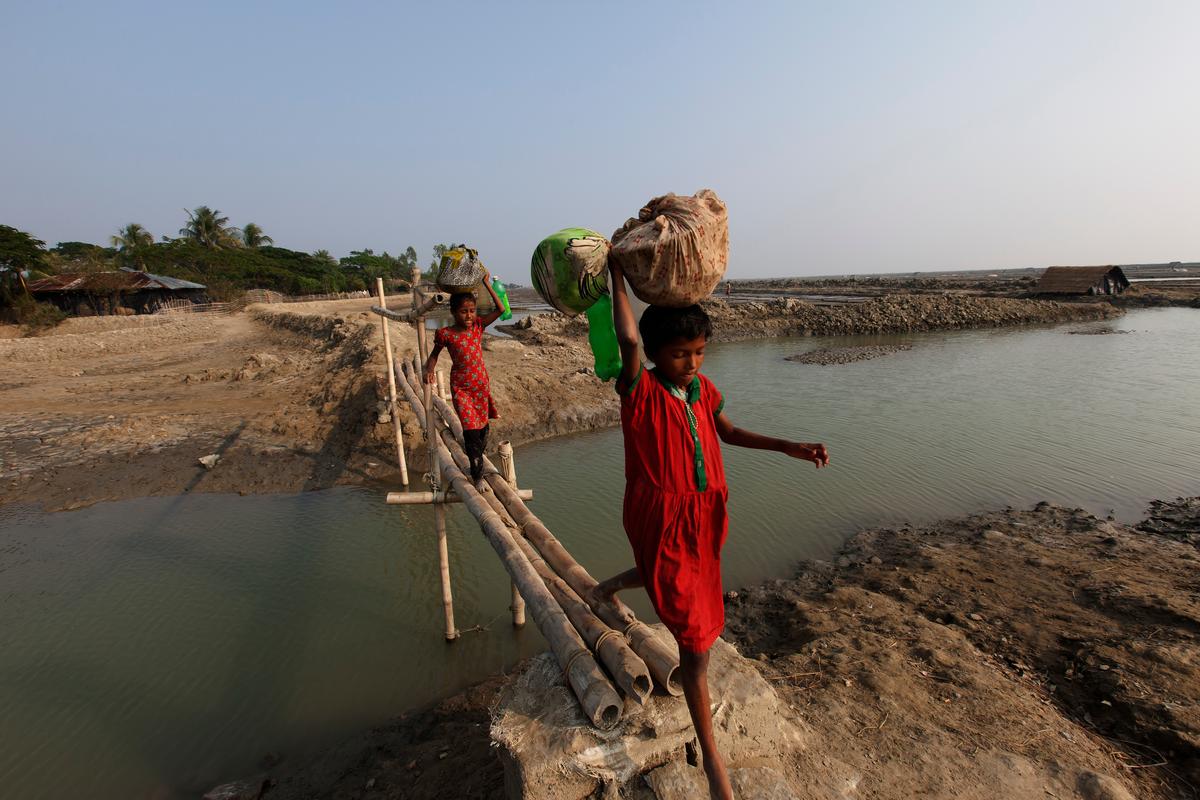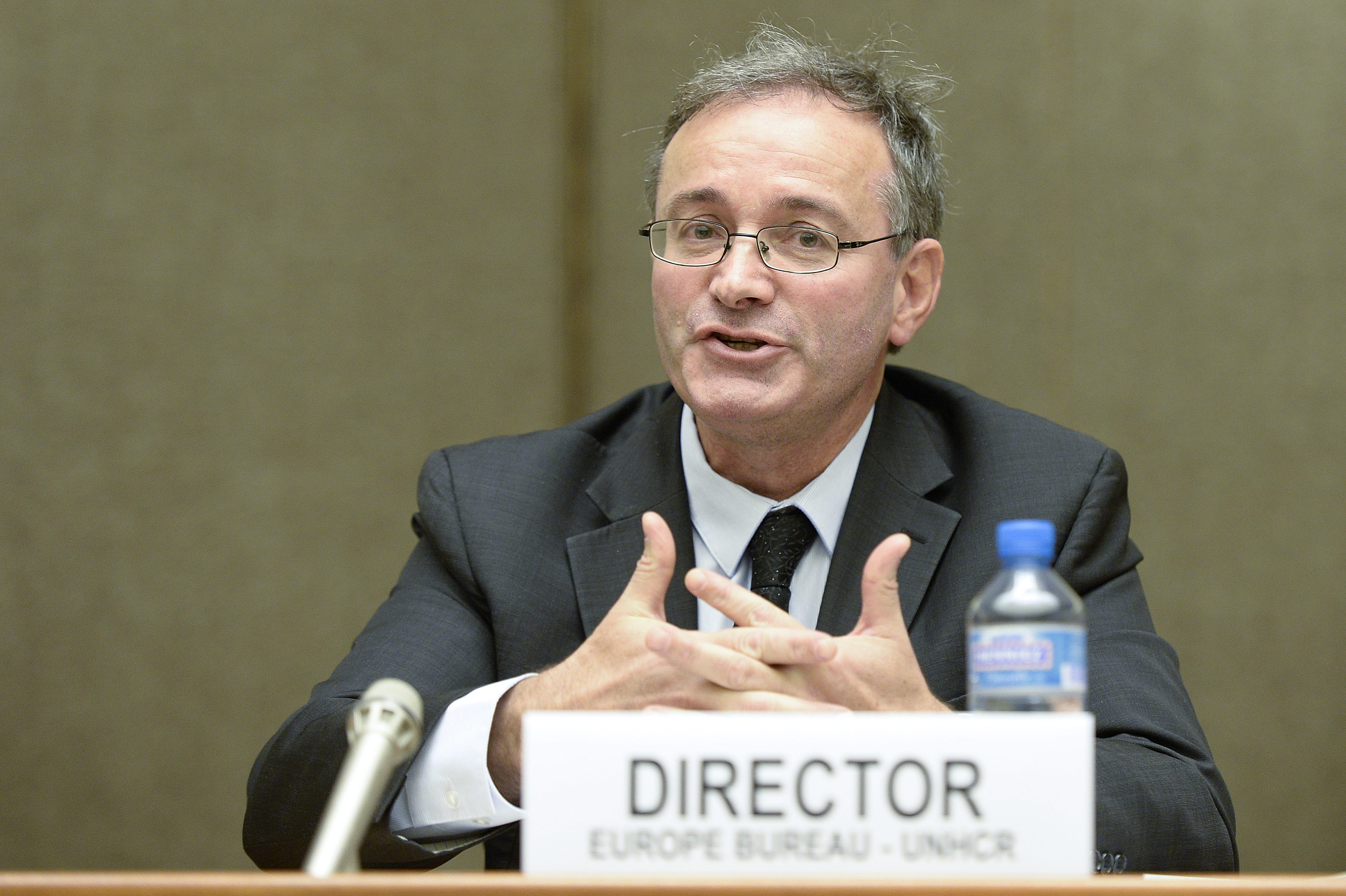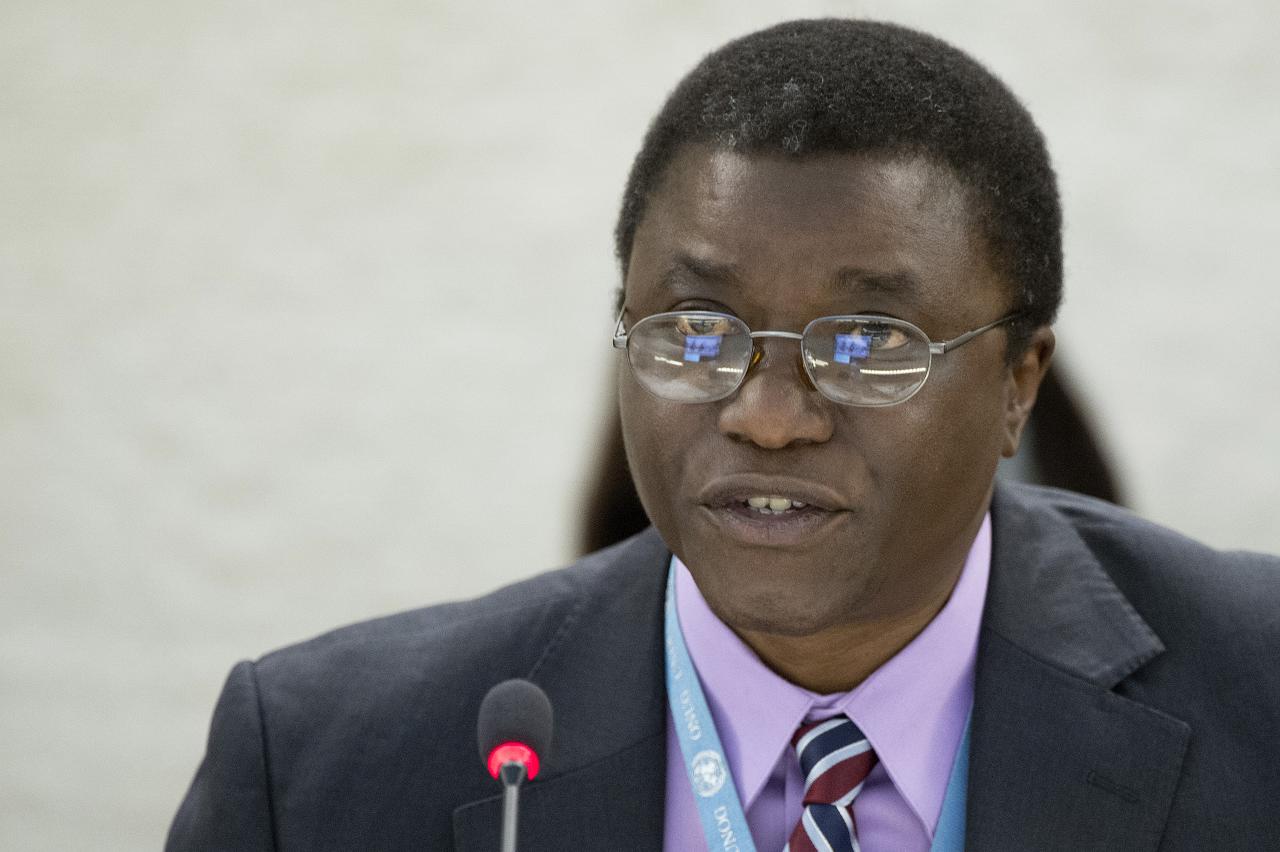Q&A: Afghan journalist pushes boundaries through airwaves
Q&A: Afghan journalist pushes boundaries through airwaves

PESHAWAR, Pakistan, March 16 (UNHCR) - Farishta Sheikhani is a young Afghan journalist seeking to break traditional boundaries of nationality and gender through her work in Pakistan. She works as a journalist with the Internews agency and as a disc jockey at Radio Buraq, the first Pakistani FM station to conduct programmes for the Afghan community in their own language.
She says the main idea is to educate people through talk shows on all issues, from health to politics to religion. UNHCR Senior Public Information Clerk Rabia Ali spoke to her in the frontier city of Peshawar. Excerpts from the interview:
When and why did you leave Afghanistan?
I originate from Shikhan, Panjsher but lived with my family in Kabul. We left the capital in 1994 due to the civil war, which was taking a heavy toll on civilians. My father had a business in vehicle spare parts. We did not want to leave but had no other choice. There was fighting everywhere. I was only 10 years old when we sought refuge in Pakistan.
How has life in Pakistan been?
When we first arrived, we faced many financial problems but life had to go on. In the first few months, we used our savings. Then my aunts - who live in the US - and my eldest brother in Denmark started supporting us financially. They still do.
My family and friends always told me not to mingle with Pakistanis because they treated Afghans only as refugees. But it was a misperception. When I started attending Peshawar University, I found that Pakistani people are very congenial and hospitable, which is why they have allowed Afghans to stay in their country for three decades. My interaction with the local community has not only changed my mindset but also that of my family and Afghan friends. I can say very proudly that my best friends are Pakistanis.
Why did you choose to study journalism?
I always wanted to be a journalist; I wanted to be the voice of Afghans. I was very disappointed when the Peshawar-based Ibn-e-Sina Afghan University was closed. I was in the final year of my studies and had no idea what to do - I could not get admission in a Pakistani university because I had studied in the Afghan system. But I persisted and was finally given a chance by the professors of the journalism department at the University of Peshawar. They asked me to take a short course offered to Afghan and Pakistani journalists. I was the only woman among 15 men and impressed my trainers by getting a high percentage.
Unfortunately Afghans are not fond of reading newspapers. I chose radio because it is very popular among my people. Currently, I am working as a journalist with Internews agency and as a DJ [disc jockey] at Radio Buraq, the first Pakistani FM station to conduct programmes for the Afghan community in their own language. The main idea is to educate people through talk shows on all issues, from health to politics to religion. Mostly I conduct programmes in Dari, but on special occasions I do programmes in Pashto and Urdu as well. Sometimes to do a story I even go to Afghanistan. I mostly cover stories on Afghan women, education and problems faced by the refugees. I also covered the earthquake-devastated areas of Pakistan and focused on the needs of affected women. My reports for Internews agency are aired on all the FM stations in Afghanistan.
What are some of the obstacles you face as a female journalist?
I want to be Afghanistan's top journalist, but as a woman I can't be as open as a male journalist and I have to think a lot before taking any step.
People know me as DJ Malaika [angel in Arabic], and I get many offers from local TV channels to join as a VJ [video jockey]. I discussed it with my family and friends, but changed my mind after a friend told me, "Farishta, have you ever thought about your future? If you join TV, who would marry you?" I had to turn down the offer considering the taboo attached to TV. People now only recognise my voice and my friend was right, no Afghan would marry me if I join the TV business because girls who work in TV are not considered respectable in our society. My family, who did not object initially because it would upset me, was very happy with my decision.
Did your experience as a refugee help in your coverage of the October 2005 earthquake in Pakistan?
When I reached Balakot [in North-West Frontier Province, near the earthquake's epicentre], the whole scene was so moving that I could not control my tears. I was so depressed to see their misery. I visited some of the schools and interviewed an eight-year-old girl who had lost her parents and one of her legs. She said, "I am not scared any more, I have seen enough. Since the death of my parents, I have changed." I really felt her pain, but was amazed at her courage.
Such disasters do not have boundaries. It does not differentiate among Afghans and Pakistanis. All the victims are human and they need our support to help them restart their devastated lives. When a natural disaster hits us, we always believe that it is God's will and our destiny. This belief heals our wounds. However, in the case of man-made disasters like war, the wounds of the victims do not heal. They can neither forget nor forgive because no one has the right to destroy the lives of others.
Through decades of conflict in Afghanistan, which was the worst period for women?
Definitely the Taliban times. When the regime was in power [1996-2001], I went to Afghanistan once for 15 days and I felt like a prisoner in my own house, my country. Once I went to a bazaar with my cousins. I was wearing a burqa but had forgotten to wear socks to cover my ankles. When I saw them beating other women for not wearing socks, I immediately bought a pair. Luckily, I wore them in time, otherwise they would have beaten me up too. Most of my female cousins have been beaten up. It was very humiliating for women to live in Afghanistan in those days. One of my young cousins, who is mentally retarded, was going with her mother to their relatives' house on the same street. She was beaten so badly by the Taliban because she had refused to wear the burqa, although she was fully covered. After the incident, her situation deteriorated.
Do you intend to repatriate to Afghanistan?
I intend to repatriate to Afghanistan when it has all the facilities. By facilities, people generally mean water, electricity and gas. I don't want all this. Although I have good job prospects in Afghanistan, I would like to return when I can move alone and work independently. Unfortunately, it is not possible now.
I think the day women have the same liberties in Afghanistan as we have in Pakistan would be an ideal time for me to go back. I wish Afghanistan will elect a woman president; I am sure that she will be able to make a huge difference.
The war has split my family, my three siblings live abroad. One brother works in Kabul but his family lives with us in Pakistan. He tried to settle his family in Kabul, but had to come back because the living conditions were not conducive.
Do you have a role model?
My elder sister is my role model. Seventeen years ago, she lost her husband of two years in a rocket attack. She has never worked and is dependent on the family for financial support. Even then, she is so strong and courageous, and is always there to help anyone in need. We share our problems with her because we are sure she will fix them.









